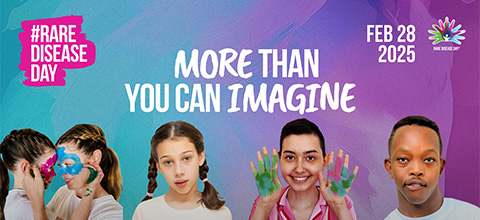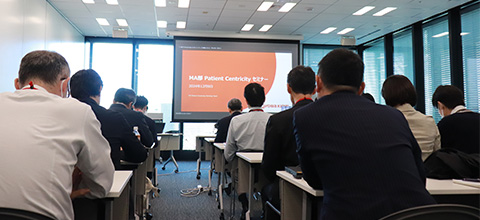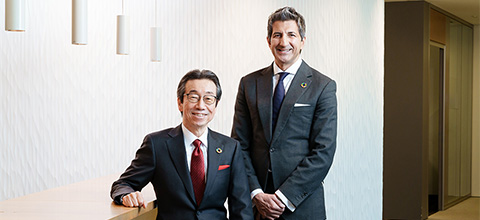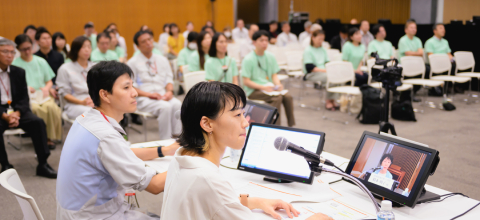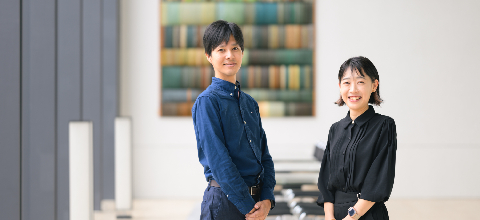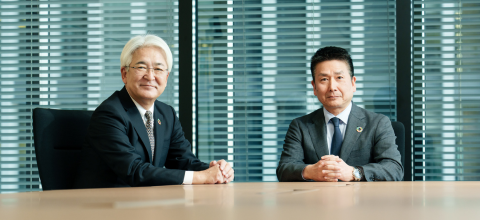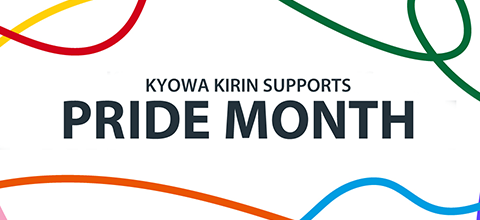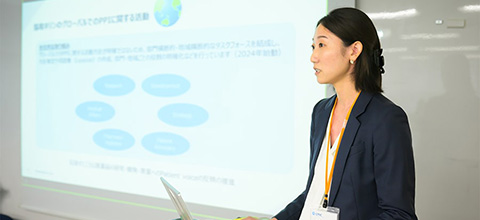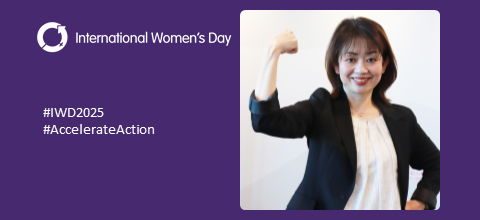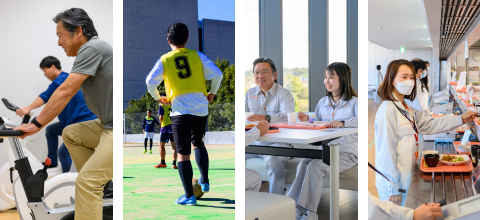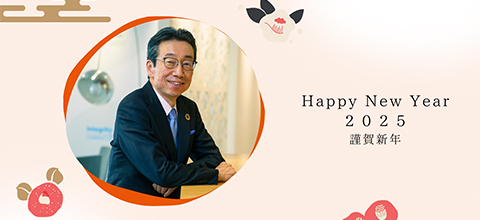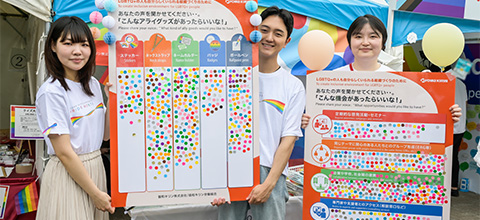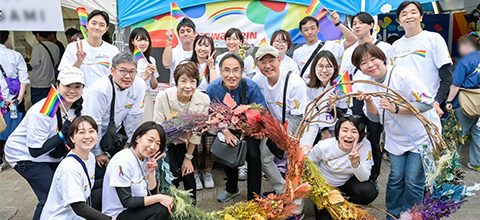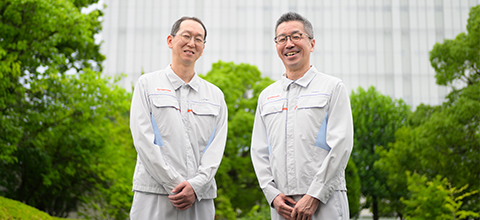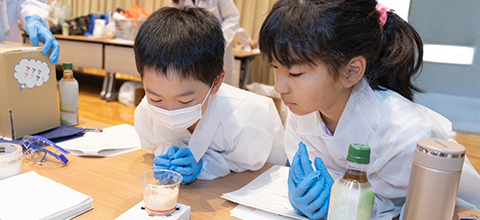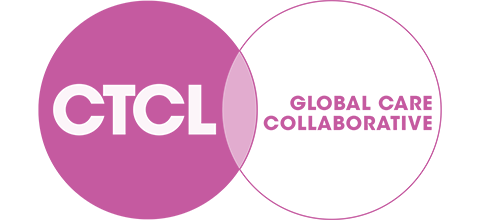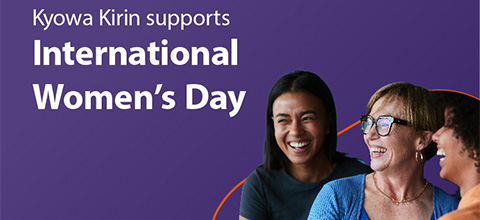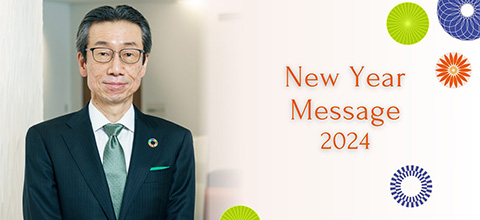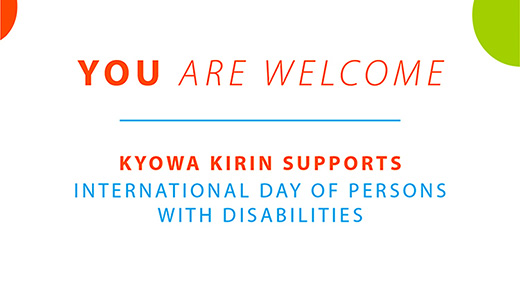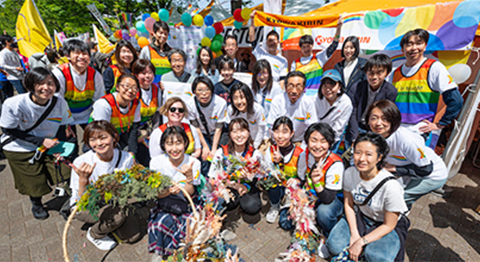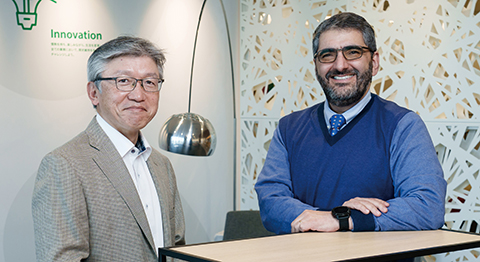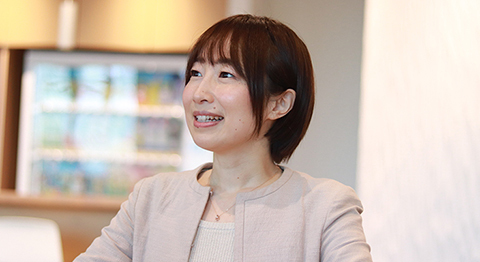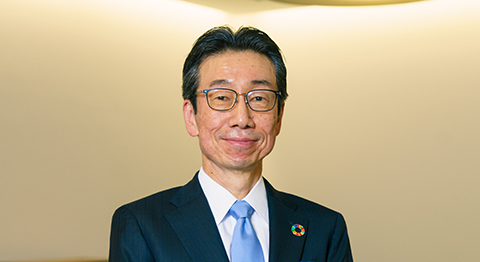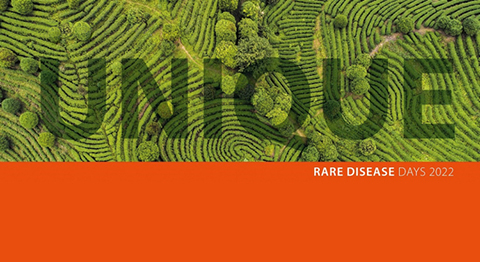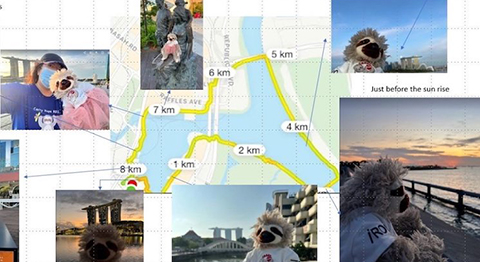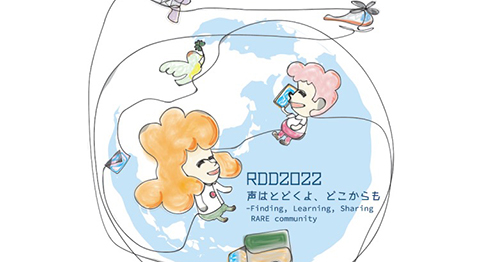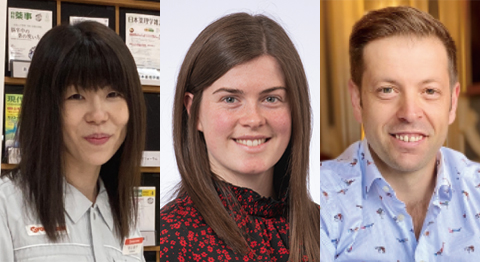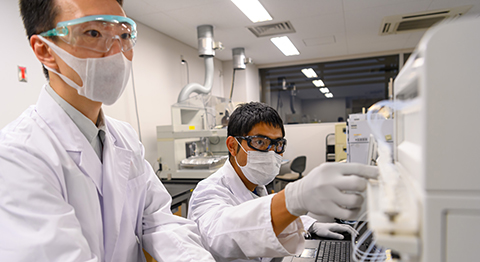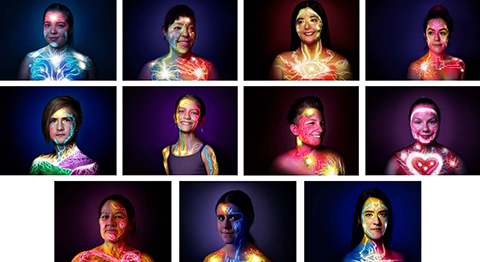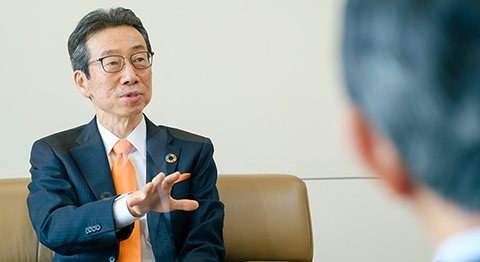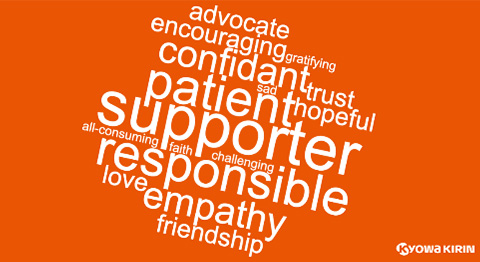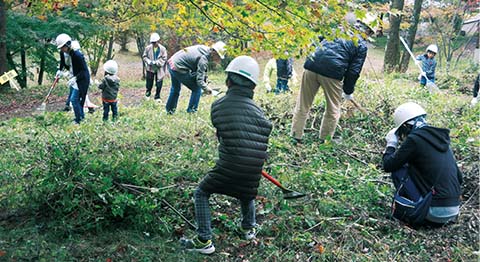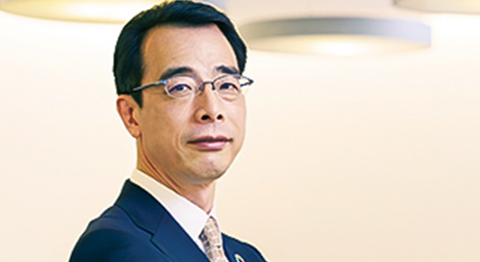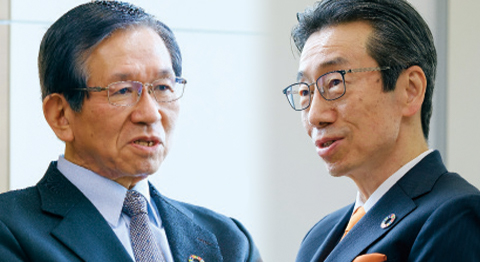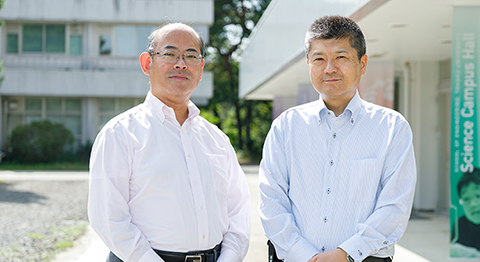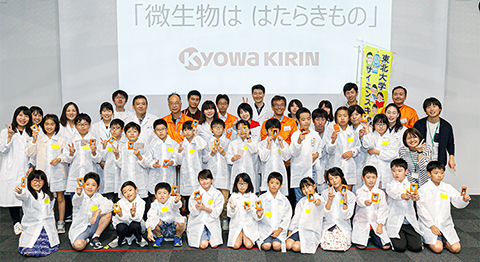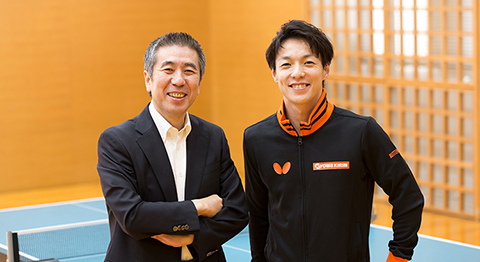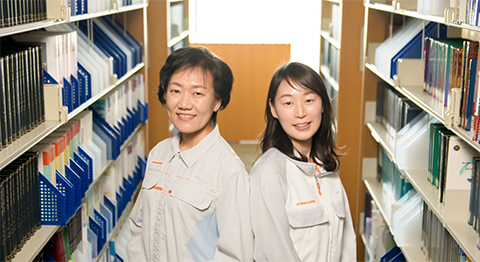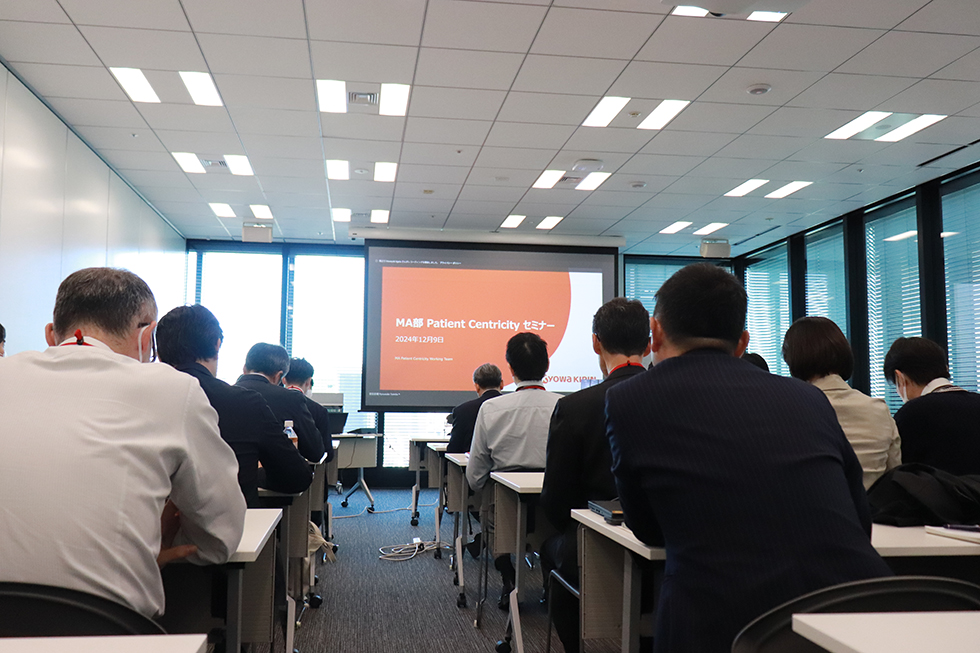
Index
Activities of MA Department in Japan
Message to pharmaceutical companies from a patient (from CMT Association Japan)
The activities mentioned in the article were conducted in Japan under the relevant laws and regulations of Japan.
Kyowa Kirin’s Medical Affairs Department (MA Department) in Japan identifies unmet medical needs through communication with healthcare professionals and patients and advances initiatives to resolve unmet medical needs. As employees involved in Kyowa Kirin’s medical affairs activities, we strive daily to engage in patient-centered activities that align more with patients’ needs. Here is one of the activities, which is an internal seminar we organized in December 2024.
Activities of MA Department in Japan
MA Department is mainly engaged in the following activities in Japan.
- 1.Identifying unmet medical needs of healthcare professionals and patients.
- 2.Developing plans to maximize and optimize the value of medicines to address the unmet medical needs that have been identified.
- 3.Generating evidence based on the above plans (Clinical Research, etc.).
- 4.Utilizing the generated evidence to provide information to address the unmet medical needs and enhance understanding of diseases.
In Japan, pharmaceutical companies have long had limited opportunities to engage directly with patients. However, in recent years, regulatory and other changes have led to increased opportunities to hear from patients about their concerns and needs. MA Department has focused on patient-centric activities (PC activities)*1 in this favorable environment. It has launched a PC Activities Working Team to advance these efforts in Japan.
- *1:Patient Centric (PC) activities: Activities based on patient centricity, a philosophy that always puts patients at the center of care, focus on their needs, and fully respect the patient’s final decisions.
Gathering input from diverse stakeholders to enhance the value of pharmaceuticals (from Japanese Institute for Public Engagement)
The PC Activities Working Team organized an internal training program in December 2024 as part of Japan region’s MA Department’s PC activities. The aim was to increase employees' opportunities to listen to patients' voices, reflect on PC activities, and encourage them to engage proactively and responsibly. For the program, MA Department invited Dr. Kyoko Imamura, the President of the Japanese Institute for Public Engagement (Ji4pe![]() ), and Noriko Kishi, who is a Director at Ji4pe and is the Secretary-General of CMT Association Japan, a patient advocacy group for Charcot-Marie-Tooth disease*2. The two guests spoke of their organizations' respective activities and expectations for MA Department. Kishi-san also shared her patient journey*3 and talked about the details of her condition.
), and Noriko Kishi, who is a Director at Ji4pe and is the Secretary-General of CMT Association Japan, a patient advocacy group for Charcot-Marie-Tooth disease*2. The two guests spoke of their organizations' respective activities and expectations for MA Department. Kishi-san also shared her patient journey*3 and talked about the details of her condition.
- *2:Charcot-Marie-Tooth disease is a group of disorders caused by genetic mutations that affect the peripheral nerves. Primary symptoms include distal muscle weakness and sensory loss in the limbs caused by peripheral neuropathy.
- *3:Mapping of the relationship and experience a patient has with their condition or disease over time, including interactions with the healthcare system.
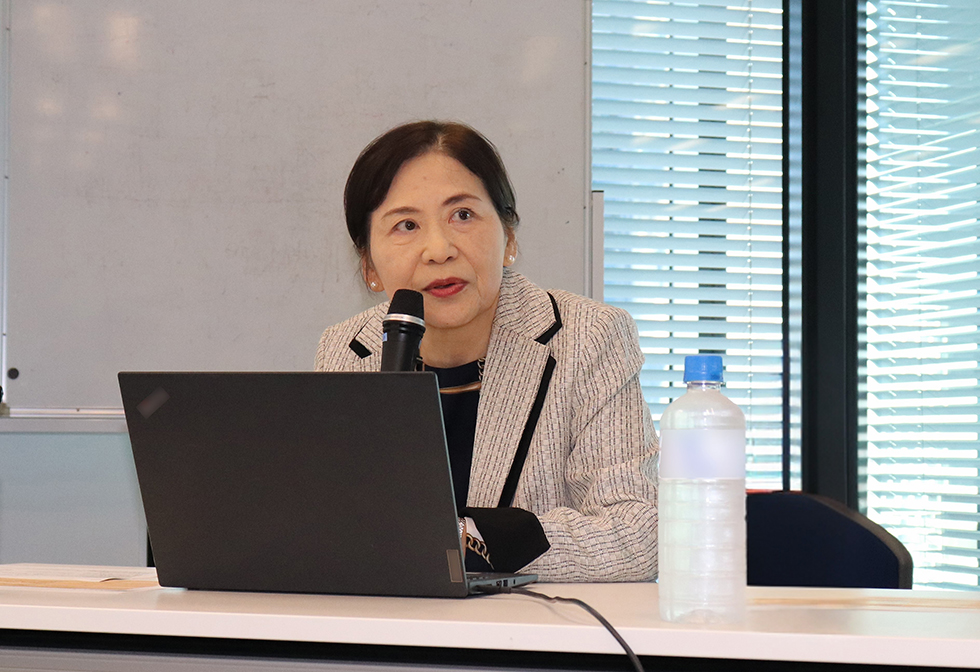
Ji4pe, at which Dr. Imamura serves as the President, provides a program for patients and members of the public to learn the development process of pharmaceutical products systematically. This reflects a growing awareness of patient and public involvement (PPI)*4 and increasing expectations for patient organizations. This means patient groups are expected to possess knowledge of the mechanisms and legal systems for healthcare and drug approval. The institute also provides workplace training for pharmaceutical companies and medical institutions to advance patient and public involvement and encourage positive changes in employees’ mindsets.
Dr. Imamura has an excellent expertise of the viewpoints of both patients and the healthcare professionals. She spoke about the challenges MA departments face at pharmaceutical companies in Japan: “The biggest problem is the lack of opportunities to interact with patients. When patients have questions about a medicine, they will immediately think of asking doctors and pharmacists. Pharmaceutical companies hardly come to mind. Also, even if a patient thinks of contacting a pharmaceutical company, they don’t know which department to approach, and worry about being passed around without getting proper answers. I think there should be more opportunities for the two sides to engage with each other so that patients can feel a sense of reassurance.”
She also gave us encouraging advice: “Explore ways that allow patients to find your website other than through a search engine. Creating a system on the website that allows patients to ask questions or post comments casually might also be good. I would like to see MA departments serve as “the face” of the company, where people can bring any concerns.”
- *4:Patient and public involvement (PPI): An effort to incorporate the opinions of patients and the public and have them get involved in the decision-making process.
Message to pharmaceutical companies from a patient (from CMT Association Japan)
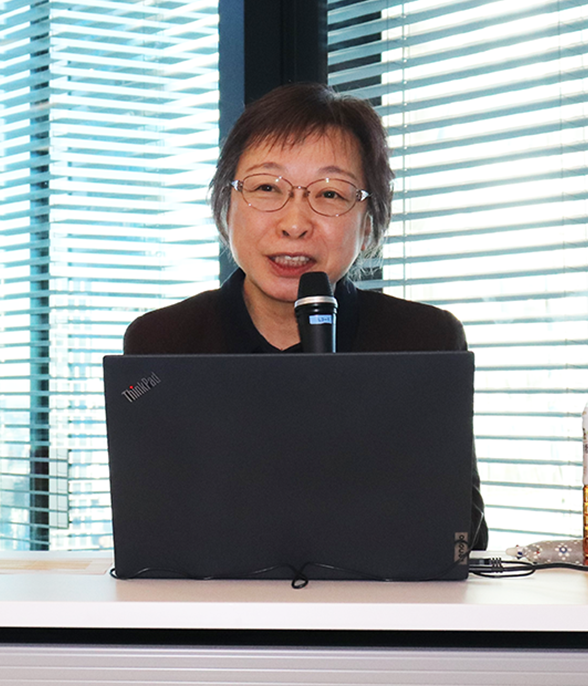
CMT Association Japan’s Kishi-san first explained what kind of illness CMT is, after which she spoke of her own experience, the group’s activities, its relationship with pharmaceutical companies, and future vision.
“CMT is an inherited and progressive neurological disease caused by genetic mutations. The illness causes a gradual decline in the transmission of signals from the peripheral nerves, resulting in muscle weakness starting in the distal parts of the limbs. There is no established treatment, and the (Japanese) government has designated it as an intractable disease. Because CMT’s symptoms progress slowly and the disease is not life-threatening, the development of drugs and medical technologies is often deemed to be of low urgency. As a result, research and implementation of treatments and rehabilitation are slow, and improvements in the symptoms experienced by patients are insufficient.
To resolve these issues, the CMT Association Japan regularly organizes gatherings and online salons where medical information and personal experiences are shared so that patients and their families can support each other and improve their quality of life.
Also, in collaboration with medical institutions and researchers, we are working to get the latest treatment information and advance research efforts.”
Kishi-san has been active within the patients’ group for over 20 years while employed. After graduating from university, she reported, edited, and conducted research for a trade journal in the financial field. Following her experience running her own company, she became involved in business operations, statistics, and corporate planning at a credit bureau.
Kishi-san’s life as a CMT patient began when she was diagnosed with the disease at the age of 33. She says that since CMT is a slow-progressing illness without a cure, she was told at a hospital that there is no need for regular visits, and she continued to explore how to live with the condition. Amid these circumstances, she met her peers who suffer from the same condition, which made her realize the need for a place for patients to meet and talk about their experiences. With seven fellow patients, she established the CMT patient advocacy group. Now that she has retired from work, her activities are centered on the CMT Association Japan and other efforts in the social sector*5.
Next, Kishi-san spoke about the CMT Association Japan’s past engagement with pharmaceutical companies and collaboration challenges. The group has utilized subsidies from pharmaceutical companies to launch its website and for other purposes. But because those subsidies are for one-off new projects and cannot be used to fund core operations, it is difficult to fully utilize them amid a shortage of staff and time. Long-term comprehensive support that helps the group’s operation is necessary as well. The group also has extensive experience in responding to interviews related to drug discovery at the request of pharmaceutical companies. But she says that, because CMT is a rare disease with no available treatment, when the group approaches companies with offers to build collaborative relationships, they are often turned down due to differences in what the group seeks and what companies expect, and various regulatory restraints. To resolve these problems, Kishi-san proposes that employees of pharmaceutical companies and members of patient advocacy groups get together to deepen their understanding of each other. She said that, recently, patient organizations have been increasingly setting up booths at academic meetings. She invited audiences to visit such booths held at academic conferences.
- *5:social sector:Organizations and groups with the purpose of solving social issues
Future vision of Japan’s MA Department: Striving to be the organization that best understands patients
In wrapping up the training program, MA Department Head in Japan, Takeshi Takahashi thanked the guests.
He said, “The points are valuable insight for pharmaceutical companies like Kyowa Kirin to improve. For MA Department to become a contact point where patients can readily consult, we will carry out activities with ‘The MA Department is your first stop’ as a slogan. Thank you very much.”
After the program, PC Working Team leader Kohei Suzuki spoke of MA Department’s plans.
“Kyowa Kirin’s PC activities are carried out in various forms around the world, to comply with regulations and meet patients’ needs in each country. At Japan’s MA Department, we aim to become the company's team that understands patients best. To achieve that, we need to gain a deep understanding of patients’ unmet medical needs through PC activities and other efforts. We would then develop a medical plan to respond to those needs. Based on the plan, we must generate evidence*6 and communicate it appropriately with patients and healthcare professionals. Through activities from identifying to drug fostering and evolution, we will work toward achieving Kyowa Kirin’s vision to ‘realize the successful creation and delivery of life-changing value that ultimately makes people smile.’”
The questionnaire after the seminar included lots of positive feedback: “I was made freshly aware of the importance of companies, healthcare professionals, and patients/patient advocacy groups “working together” to identify problems and strive toward solutions.”
The activity provided MA Department team members in Japan with a valuable learning experience. Our MA Department will continue to serve as the company’s crucial point of contact with patients and press on to realize Kyowa Kirin’s vision.
- *6:Evidence: Highly credible evidence from clinical studies evaluating efficacy and safety.
